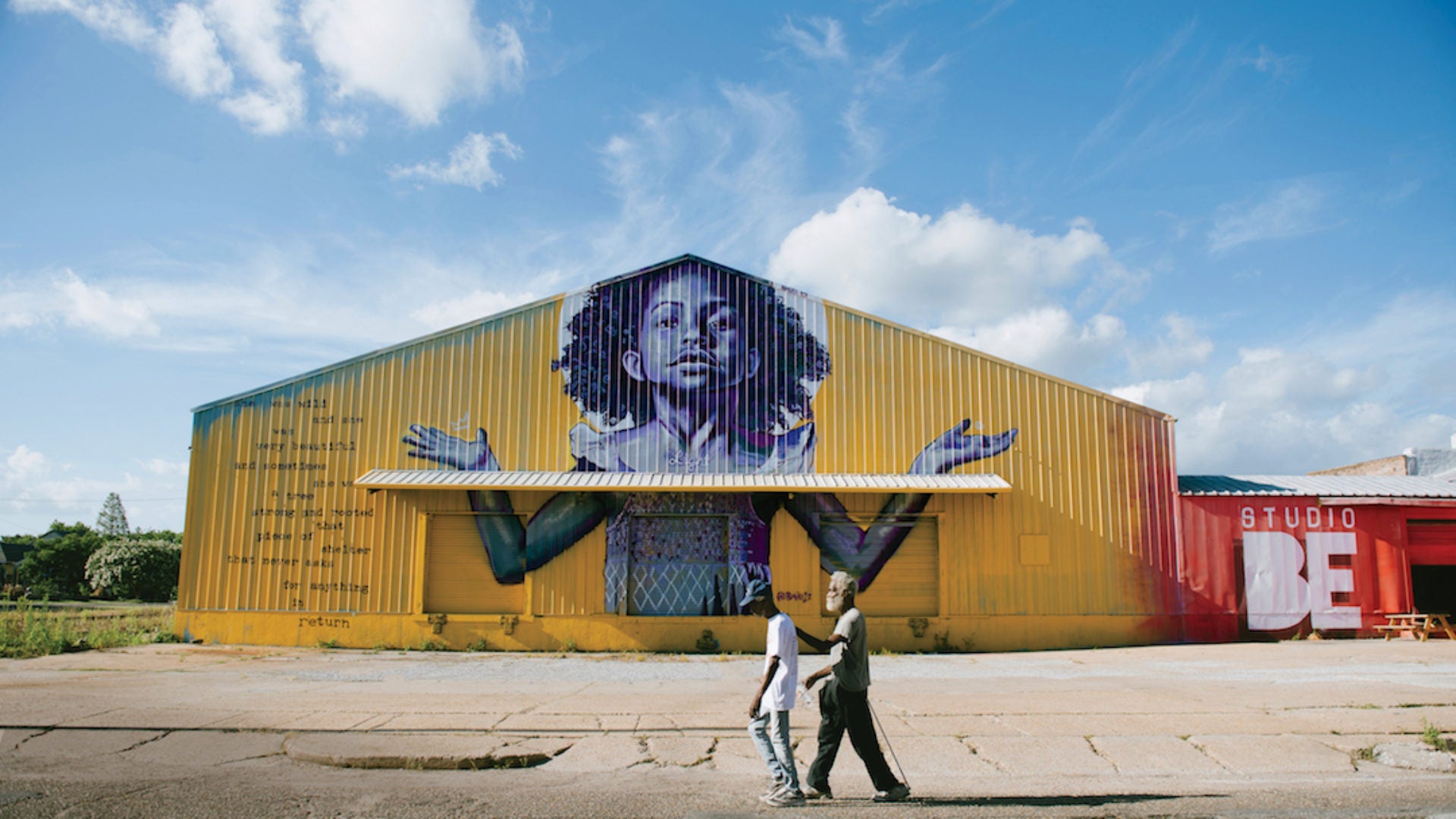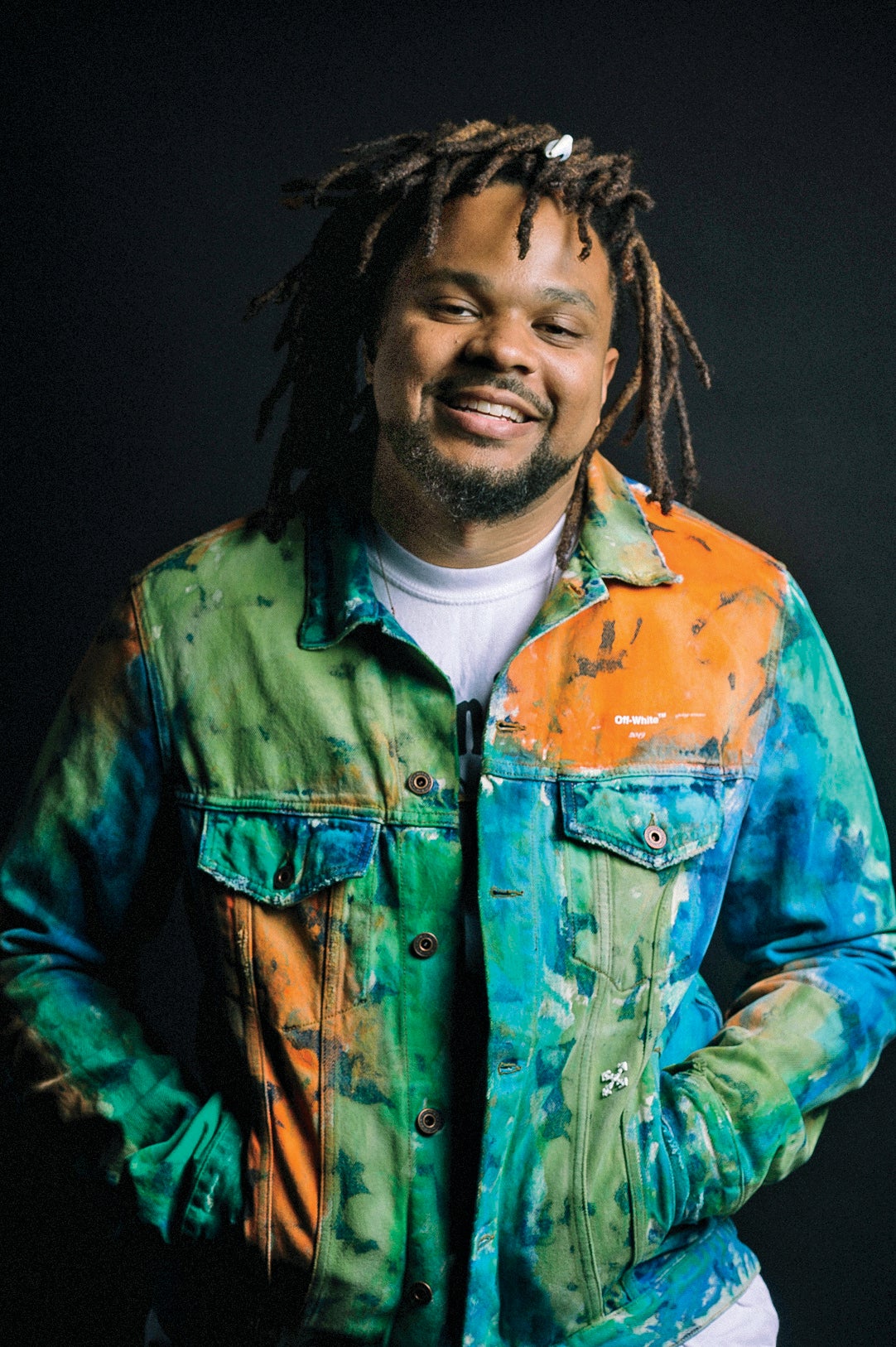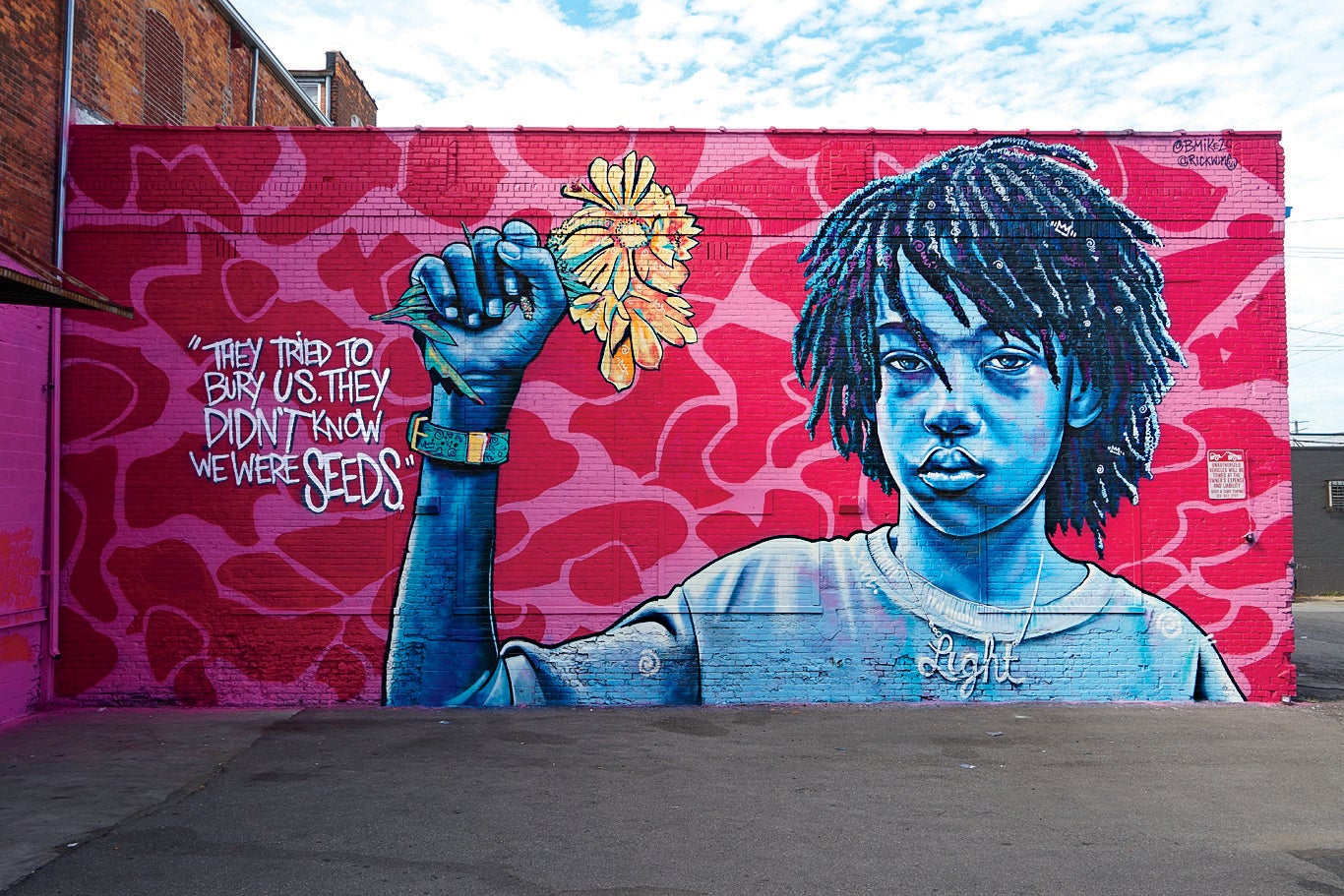
Brandan “BMike” Odums sees beauty in neglected spaces.
If you’ve ever visited his hometown of New Orleans, you may have walked past his work—his mural of French soccer star Paul Pogba near the Lafitte Greenway, for example. Or maybe you were curious about the civil rights icons painted on the walls of an abandoned housing project—a part of his 2013 series Project BE in the city’s Lower Ninth Ward, the area that was hardest hit by Hurricane Katrina back in 2005.
“As an artist, all I’m trying to do is amplify what’s already there by collaborating with the people who are already there,” says Odums, who keeps his community, his city and his message at the heart of everything he creates.

“I think that’s the difference between coming into a space as a developer and saying, ‘Okay, I want to change this space in order to make it beautiful.’ For me, I’m coming in like an interpreter. How can I basically say what people are already saying but using art to do it?”
The artist has looked to the history and mythology of New Orleans to turn some of its ignored and forgotten corners into areas where art can flourish. What initially started out as an illegal venture has now become a legitimate career with his I Am Untitled paintings, featuring Trayvon Martin, Michael Brown, Oscar Grant and Eric Garner, and his tees emblazoned with the phrase “I Am My Ancestors’ Wildest Dreams.”
In 2016 a groundswell of support helped him launch his massive creative space, Studio BE. And as much as Odums’s work is for the community, he has had to make peace with the way his designs can transform a neighborhood.
“When I started doing this, I didn’t define myself as a visual artist or a graffiti artist or a street artist. It was just something I was doing,” says Odums, who studied at the New Orleans Center for Creative Arts. “But I had to come to terms with the fact that every spectrum of public art, whether it’s the illegal side of graffiti or the legal side of murals and street art, has a proximity to gentrification.”

The way Odums addresses this complicated reality is “to be as truthful as possible at all times,” he says. “I think regardless of who I’m working with or why I’m working, no one can buy my voice. That idea of being truthful is my way of speaking on behalf of those who don’t have a voice, and that makes it very difficult to see the work as just a pretty image.”
Next time you’re in NOLA, stop by Project BE and take in Odums’s truth. You, too, will be transformed.